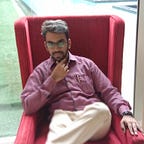Do we really think through all our important matters?
Do we really go through life, like we are solving another 100 marks paper?
Can we actually be 100% objective, in any of our life choices?
Frankly, even I don’t have “Correct” answers for this.
In fact, most of us have been well-taught in schools and universities on fundamental principles and laws on a plethora of disciplines known to mankind, and yet a huge chunk of this become useless once we move out in the real world.
We have also been trained at finding pre-determined answers to carefully formulated questions.
Almost conditioned to thinking in generic ways for similar situations and events. Simply speaking, we have been taught in terms of the binary- Right or Wrong, or utmost step-wise Right-Wrong. Which has rather annihilated our natural abilities, leading us into becoming followers rather than leaders. Slaves rather than Masters!
As Robert Kiyosaki puts it, schools were developed to teach children to obey orders and so as they are told. Compliant and obedient students become employees who are content to work for the rich or become soldiers who sacrifice themselves for the rich.
Another hypothesis could be a more psychological one under-tone. It has been assumed at least over the last century, that critical thinking would be a natural process of evolution and growing up and need not be focused separately. Instead, what has been focused upon is the cramming of knowledge because 20th century worked on “Knowledge is Power!”
Similarly, most of the origins of modern education are from the west be it modern medicine and engineering to finance and consultancy, the fundamental key to understanding or approaching any subject has always been through dissection and simplifications through carefully crafted assumptions and presumptions. These then form the back of further research. I am not denying the vast strides made in this regard. What I am wondering is that this approach has led to a rather quick and effective way to understanding only the material aspect of any discipline. This is because we haven’t been able to holistically gather all variables and events for a plausible real-time function. We have always worked on a straight line trajectory because that seems sophisticated and “logical’’.
This is only then natural that things like “The Black Swan Event”, “The Chicken and Egg Problem” etc are gradually finding more takers as people realize the limitations of traditional education.
On a deeper level, as Daniel Kaheman articulates it in his book:
"We use two primary modes of thinking to process information and make decisions.
Mode 1 is intuitive, instant, unconscious, automatic, and emotional.
Mode 2 is slow, rational, conscious, reflective, reasoning, and deliberate.”
It is by our very nature as humans, that we tend to simplify stuff by heuristics and cognitive bias. It is far more wide-spread today even amongst the professionals due to the information overload that is prevailing around, due to technology and easy flow of information. Once a conclusion is derived, it becomes convenient to just back that by shallow but strong will. It’s the same reason why we have geniuses often doubting themselves while the fools are able to get away with their exuding confidence and faith.
The next step in this mental process is- validation. Once our hypothesis is backed by our own minds, we search for validation. This should not be confused with arguments and opinions and patterns that question our hypothesis. We would mostly reject those spontaneously on the grounds of irrelevancy and inadequacy. Consequently, we would test it in fewer circumstances justifying as lack of time or otherwise but in reality, we just don’t want to get that proved wrong.
What really can we all do to mitigate this issue?
Apart from what is stated in the book, this is what I think:
Firstly, start reading and start listening. Substitute your Netflix binge-watching by a book-reading spree or an Audible binge. Read everything out of your competency. If you are a engineer, read finance, mythology and fiction. I for one, cannot read an end to end book. So I try and start 2–3 books and read some parts each day. If the book doesn’t look like a value add, it’s not a compulsion to complete, but its important to keep learning.
Secondly, we really need to discard the straight-line thinking trajectory, or what you would call Excelgiri (Accountants and analysts will relate). Start thinking from non-traditional ways. Look out for parallel solutions, inter-disciplinary approaches. Most importantly, be aware of the biases that you have, and keep challenging your assumptions and biases.
And for that, Don’t take any law or rule for what it is, whether its inked in stone or in your mind. Think in terms of scale and mass, develop network effects and linkages between thoughts and businesses. Before you get blasting in, just try and Intern /work with a rapidly scaling start-up or a company in the same line of business. But do get worked up asap!
What are your thoughts on this?
If you like this article and are looking for a personal coach or a helping hand, from writing blogs to investing to finalizing CV, book recomm. and cracking interviews, I would love to help you out. Reach out to me: vaibhavtodi101@gmail.com
